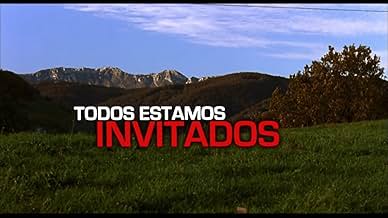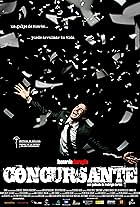The shortage of films dealing with the oppression imposed to a part of Spanish society (the people living in the Basque Country) by the Marxist-nationalist terrorism of the Basque separatist mafia-like organization ETA can only be explained by fear. The fear that makes very difficult to depict what happens in a society in which silence is the fist commandment also explains why, after 30 years of democracy and a generous autonomy for the Basque Region, the terrorists remain active. The making of this film had to overcome the negative of many of its possible crew to collaborate in it (ETA has killed journalists and intellectuals who oppose to the Basque Nazism). Terrorism in the Basque Country is directly supported by less than 10% of population but many Basques regard themselves as "moderate" nationalists (about 50% of the population votes for more or less "moderate" nationalist parties) but most of them oppose terrorism only in their speech but never in their action. It is a mean mix of fear and usefulness (when you are a nationalist your life becomes much more comfortable than the one of non-nationalist citizens) that remains unchallenged.
It would have been necessary many more movies that portray the life of those that have been threatened for opposing to the nationalist mafia, to advance in the fight against terror, and those films should have been made twenty years before. Gutierrez Aragon deserves credit for reflecting how fear is the fabric of that society: it is well depicted the way of living of a university teacher who must be escorted by bodyguards 24h a day, and it explains that thousands of other common citizens live under protection (plain councilors, journalists, teachers
) while their neighbors and "friends" give them their back. But the story most of the time does not flow but advances in fits and starts, and the political responsibility of the authorities is not discussed; it seems that when writing the script so many subjects were necessary to treat, because of the delay of years, that the mission was not successfully accomplished. So far, fiction has not been the accurate way for cinema to deal with that everyday reality and maybe only documentary movies could be successful in it. In the scarce list of movies dealing with the suffering of victims of the Basque nationalist terrorism one stands out: "Thirteen among a thousand "(2005) (Trece entre mil) by Basque director Arteta: it is a documentary and it is both more valiant and more precise than "Todos estamos invitados" in the objective to portrait the covered truth of a society oppressed by Nazis in the middle of a democratic and prosperous Europe.





















